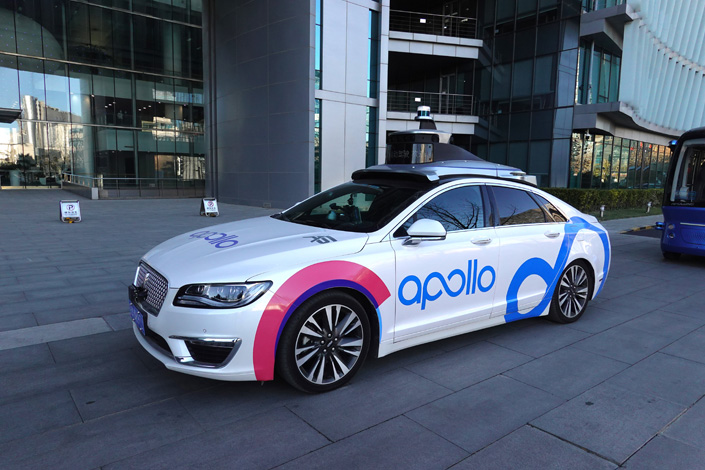This week’s stories are about tech, AI and autonomous vehicles, coming from Switzerland and the USA
Governments struggle to scale Gen AI adoption, study finds
A growing number of governments are experimenting with generative artificial intelligence (GenAI) tools such as ChatGPT and CoPilot, but most have yet to move beyond pilot projects, according to new research by Apolitical.
The study, based on data from nearly 5,000 public servants worldwide, found that only 49% of public agencies have developed an AI strategy, even though 72% have launched pilot initiatives. The findings suggest that the public sector is facing an “impact gap,” with widespread experimentation but limited large-scale results.
Apolitical’s analysis revealed that while individual use of GenAI tools is rising, most applications remain focused on basic tasks like email drafting and internal communications. Only about a third of public employees who say they use AI have integrated it into their daily workflows.
The study identified two main barriers to scaling AI adoption in the public sector: lack of training and poor project design. While many government leaders are urging staff to use AI tools, limited training means most employees apply them only to routine tasks. Pilot studies in the U.K. and Australia showed that trained workers were more confident and saved more time using AI.
Apolitical also found that most government AI projects are not designed for scale. Many focus on internal tools rather than public-facing applications, partly due to ongoing concerns about accuracy, transparency and trust.
Apolitical analyzed more than 300 government AI projects across nine countries — including the United States, United Kingdom, Singapore and Australia — to develop a taxonomy of how generative AI is being used. The group identified three main adoption models: licensing general-purpose tools, building customized AI systems, and creating internal AI platforms.

Governments struggle to scale Gen AI adoption, study finds
Meta leads US tech lobbying
Meta, the owner of Facebook, Instagram and WhatsApp, again topped the list of tech lobbying spenders in the third quarter of 2025, as artificial intelligence and semiconductor firms sharply increased their influence efforts, federal disclosures show.
I saw this story at Axios and Meta spent $5.8 million on lobbying from July through September, followed by Amazon at $4.4 million and Google at $3.6 million, according to filings with Congress. Apple and Microsoft spent $2.5 million and $2 million, respectively.(By the way I have a story here about Facebook)
All five tech giants maintain broad lobbying agendas covering issues such as AI regulation, content moderation, digital taxation, privacy, trade, online safety, and copyright, according to the story.
AI-focused and chip companies narrowed the gap this quarter. Nvidia, Anthropic and AMD all reported record spending, reflecting the growing policy stakes around AI and semiconductor supply chains, the story noted.
Nvidia tripled its lobbying expenditures to $1.9 million, up from $620,000 in the second quarter, while Anthropic crossed the $1 million threshold for the first time. AMD boosted its spending to $1.5 million from $1.1 million.
Anthropic lobbied on the Trump administration’s executive orders governing AI in education, data center infrastructure and content moderation, as well as on the GAIN AI Act — a proposal requiring U.S. chipmakers to prioritize domestic buyers. Nvidia focused on semiconductor trade policy, export control reform and quantum R&D, while AMD advocated on the CHIPS Act and outbound investment rules.
Venture capital firm Andreessen Horowitz also surpassed the $1 million mark for the first time, spending $1.3 million to lobby on digital assets, AI, fintech, taxation and open-source AI policy, the story noted.

Meta leads US tech lobbying
Baidu to test steering wheel-free robotaxis in Switzerland
Chinese tech company Baidu said its Apollo Go unit will begin testing self-driving taxis in Switzerland in December.
I saw this story at Cnbc and Baidu’s Apollo Go will partner with Swiss public transit operator PostBus under a new strategic agreement. The firms plan to roll out a public robotaxi service, branded “AmiGo,” by the first quarter of 2027 using Baidu’s RT6 electric vehicles, according to the story.
Once the service is fully operational, Baidu said it plans to remove steering wheels from the vehicles, marking one of the most advanced stages of driverless deployment in Europe so far, the story noted.
The Switzerland project represents Baidu’s most concrete step yet toward introducing its robotaxis on European roads. In August, the company announced plans to work with U.S. ride-hailing firm Lyft to deploy robotaxis in the U.K. and Germany starting in 2026. A month earlier, Baidu revealed a separate deal with Uber to integrate Apollo Go vehicles into Uber’s platform outside the U.S. and mainland China.
Let me note that the European robotaxi race is heating up. Chinese rival Pony.ai said it would begin testing in Luxembourg in partnership with automaker Stellantis, with plans to expand to more European cities next year. Meanwhile, Alphabet-owned Waymo plans to launch tests in London before rolling out its own self-driving taxi service in 2026.
Uber also announced in June that it will begin trials of fully autonomous rides in the U.K. next spring in collaboration with British self-driving startup Wayve, backed by SoftBank.

Baidu to test steering wheel-free robotaxis in Switzerland








